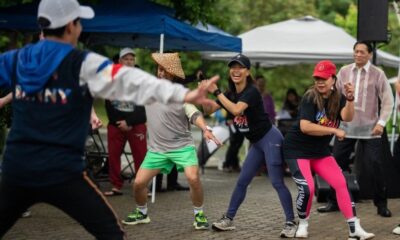Local News
Better Business Bureau warns sugar babies about scams

In light of Valentine’s Day, the Better Business Bureau (BBB) is telling people to take caution when sugar dating — a trend it says is on the rise.
The Leader Spirit spoke with BBB representative Aaron Guillen, who says it’s important to be careful and set the right boundaries.
“Making sure you’re both on the same page, what are you looking for in these relationships where you get some sort of monetary gains? And if you’re not okay with it, take a step back,” he said.
The BBB says scammers usually reach out to younger people with financial struggles on dating sites or social media, pretending to be rich and promising to give money in exchange for calls, photos, or dates.
“Romance scams exploit a person’s emotions on a deeply personal level, often leaving them embarrassed. We find victims of these scams are even more ashamed to admit that they’ve fallen for a scam,” said Neesha Hothi, director of Communications and Marketing at BBB.
“Although this is still a rare scam, it is a heartbreaking one, in more than one sense. Not only is the victim mourning the relationship, but they may also have lost hundreds, even thousands of dollars in the process. Devastating on both fronts,” she added.
Guillen says while this type of dating may be tempting for young people dealing with financial difficulties, it’s not a viable source of long-term income.
“When it comes to be your main source of income, there really is never a guarantee of stability when it comes to this type of financial transaction,” he said.
The BBB is sharing its top six tips to apply when considering ‘sugar dating’:
- Don’t feel pressured
- Don’t depend on sugar dating as your only form of income
- Keep dating profiled separate from social media
- Meet in public
- Vet profiles to acoird wasting your time
- Arrange your own transportation
Sugar dating is described by the BBB as a business-like arrangement which involves “sugar babies,” usually younger people, who date “sugar daddies” or “sugar mommas,” who are often wealthier and older people in exchange for allowances.
With files from Maria Vinca












